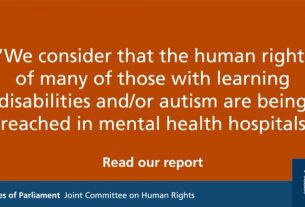Doubts are growing over the efficacy of the Oxford/AstraZeneca vaccine with Germany’s leading business newspaper claiming the jab is only 8% effective for over 65s.
AstraZeneca have rejected the “completely incorrect” claim with a spokesperson saying the jab has JCVI and MHRA authorisation, adding: “In November, we published data in The Lancet demonstrating that older adults showed strong immune responses to the vaccine, with 100 percent of older adults generating spike-specific antibodies after the second dose.”
However, Gregory Waschinski the political correspondent of Handelsblatt, claimed in a column the vaccine is only 8% effective in fighting the deadly virus in people over 65.
“We have learned that the German government is considering changes to its vaccination plan due to the possibly insufficient efficacy AZ for elderly risk groups (65+) which German officials estimate at 8%. Among younger groups, a much higher efficacy of around 70 % is expected,” Waschinki tweeted tonight (January 25).
He added: “We have confirmed the story with multiple sources familiar with the German vaccination policy. Our sources, including members of government coalition and experts, spoke on condition of anonymity so we cannot source the story ‘on the record’ nor make public any underlying data.”
‘A vaccine for the rich, and a less good one for the poor’
The report follows concerns expressed by scientists in Australia about the effectiveness of the AstraZeneca vaccine leading to calls on the government to review its vaccination programme.
President of the Australian Medical Association in Western Australia, Andrew Miller said: “Until we get more data that shows that AstraZeneca is as good as the others, the scientific and medical risk that you take is that you won’t get herd immunity.”
His comments were published in the FT on January 13, and Miller: ”The political risk is that you will get a good vaccine for the rich and a not so good vaccine for the poor”
‘Bitter blow’ for EU after Oxford vaccine hits ‘supply chain problems’
In August, the European Commission announced it had secured 300 million doses of the Oxford-AstraZeneca vaccine and an option for 100 million more – enough for 200 million people, approximately half of the EU population.
The vaccine was expected to be delivered to member states this week, following anticipated market authorisation from the European Medicines Agency. However, AstraZeneca told the EU on Friday (January 22) it would be unable to fulfil its contractual obligations due to supply chain problems.
Only 31 million doses of the AstraZeneca vaccine will be delivered by the end of the March to the EU, compared to the expected 80 million doses.
The revelation is described in the Telegraph as a “bitter blow for the [EU} commission…especially for the bloc’s member states” who now have “the unenviable task of explaining to their voters why the promised vaccines are not coming.”
Non-UK workers ‘flee’ pandemic and Brexit’s bite
Up to 1.3 million foreign born workers have left the UK during 2020 – 700,000 from London, according to analysis by a research hub set up by the Office of National Statistics called the Economic Statistics Centre of Excellence (ESCoE).
The sectors of the economy hit hardest by the pandemic have recorded the biggest exodus of non-UK staff with ESCoE estimating 217,000 leaving the retail sector and 158,000 non-UK workers losing or leaving their jobs in hospitality (food and accommodation). The Financial Times report that manufacturing, construction and transport have also seen large losses of non-UK staff.
King’s College research, published by the FT under the headline: “Foreign workers flee UK as pandemic and Brexit bite”, shows London lost more non-UK workers than any other region.
The mayor of London’s office said a “substantial proportion” of what is the biggest increase in unemployment in 30 years is made up of non-British workers.




